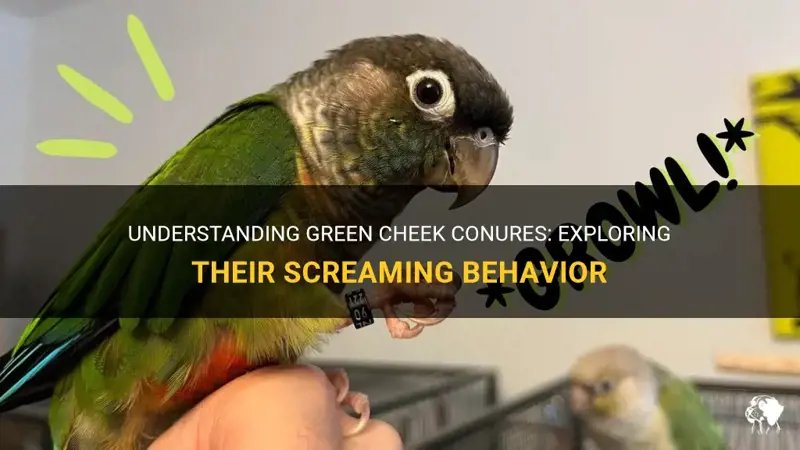
Imagine you’re at your favorite coffee shop, sipping a warm latte, and you start chatting about how to make sense of a conure’s antics. You might be surprised to learn that their behaviors are often rooted in their instincts, needs, and even how they interact with you. Let’s dive into the world of conures and explore their quirks and traits together!
Understanding Conure Personalities
Conures are known for their vibrant personalities. They are often playful, affectionate, and sometimes a bit feisty. Think of them as the entertainers of the bird world. Just as some people have outgoing personalities, conures do too! They thrive on social interaction and love being part of the family.
If you’ve ever met a conure, you might’ve noticed how they can be talkative and curious. They enjoy exploring their surroundings and getting into everything. It’s like they have a built-in curiosity meter that’s always set to high. When you see them hopping around or trying to investigate a new toy, that’s their instinct kicking in. They want to learn about their environment, and that’s perfectly normal for these little feathered friends.
However, with all that personality comes the need for proper socialization. If a conure isn’t given enough attention and playtime, they might develop some undesirable behaviors. Imagine if your lively friend suddenly felt ignored; they might act out or feel anxious. Similarly, your conure needs engagement to stay happy and healthy.
The Art of Screaming
Let’s face it: everyone loves a good sing-along, but when your conure starts to scream, it can feel like a concert gone wrong. You might be wondering, “Why do they do this?” Well, screaming is a natural form of communication for conures. They use their voices to express excitement, boredom, or even to get your attention.
When conures scream, it’s usually because they feel stressed or are trying to interact with you. If they’ve been left alone for too long or haven’t had enough playtime, they’ll let you know! It’s their way of telling you, “Hey, I need some love and attention over here!”
So, how can you manage this? Here are a few tips:
- Establish a Routine: Set specific times for play and interaction.
- Provide Toys: Keep them entertained with engaging toys to reduce boredom.
- Positive Reinforcement: Reward quiet behavior with treats or praise.
The key is to respond to their needs rather than just shushing them. It’s about making sure your conure feels valued in your home.
Why Do Conures Bite?
Ah, the dreaded bite! If you’re a conure owner, you’ve probably experienced this at least once. Here’s the thing: biting is often a sign of fear or discomfort. Just like a dog might growl if it feels threatened, a conure may bite if it’s feeling stressed or cornered.
Before you panic, let’s look at some common reasons why they might resort to biting. It could be that they feel trapped, or maybe they’re not familiar with you yet. Sometimes, they bite simply to test boundaries—much like a toddler exploring what they can and can’t do.
To reduce biting, try these strategies:
- Build Trust: Spend time with your conure without forcing interaction. Let them come to you.
- Know Their Signals: Learn their body language. If they puff up or move away, it’s a sign they’re not comfortable.
- Use Gentle Handling: Always approach them calmly and gently, especially during out-of-cage playtime.
Understanding their behavior is crucial in preventing bites and building a loving bond.
The Importance of Socialization
Socialization is everything for a happy conure. If you’ve ever seen a conure that’s shy or overly aggressive, it’s likely because they haven’t had enough social experiences. Just like how we need friends to feel connected, conures need interaction with their owners and other birds to develop their social skills.
Introduce them to new people and environments gradually. If you keep your conure isolated for too long, they may develop anxiety or fearfulness towards new experiences. Think of it as preparing them for a family reunion—where they get to meet everyone and hopefully enjoy the festivities!
Try to engage with them daily. Play with them, let them sit on your shoulder, or talk to them. When they feel loved and included, you’ll likely see fewer behavior issues.
Engaging Their Curiosity
Conures are naturally curious creatures, and they love to explore. If you don’t provide enough stimulation, they might resort to unwanted behaviors, like excessive screaming or biting. It’s like giving a child a box and expecting them to stay entertained; they’re going to want to know what’s inside that box!
Create an enriching environment for your conure. Offer a variety of toys, climbing structures, and safe things to chew on. It’s essential to rotate their toys regularly to keep things fresh and exciting. You want your conure to feel like they live in a mini amusement park, not a bland cage!
Additionally, encourage interactive playtime. You can teach them simple tricks, like spinning or fetching small items. Not only does this foster a bond between you and your bird, but it also keeps their minds active and engaged.
Dealing with Hormonal Behavior
As conures mature, they may go through hormonal changes that affect their behavior. During breeding season, for example, they might become more territorial, displaying behaviors like increased screeching or even biting. It’s a natural part of their life cycle, but it can be challenging to manage.
Recognizing hormonal behavior is important. If your conure starts acting out during certain times of the year, it might be related to their hormones. To help, provide a calm environment. Minimizing stressors like loud noises or sudden changes can soothe them during this phase.
Also, consider offering more toys to redirect their energy. If they have something they can chew or play with, it can reduce unwanted behaviors.
Navigating the behavioral traits of conures can feel a bit like learning a new language, but with time and patience, it becomes a beautiful conversation. Understanding why they scream, bite, or explore is the key to fostering a happy home for both you and your feathered friend.
With proper socialization, engaging activities, and a little love, you’ll turn those common behavioral quirks into unique aspects of your conure’s vibrant personality. Plus, the joy they bring can be worth every chirp and squawk! So, get ready to embrace the fun and challenges that come with having a conure in your life.

